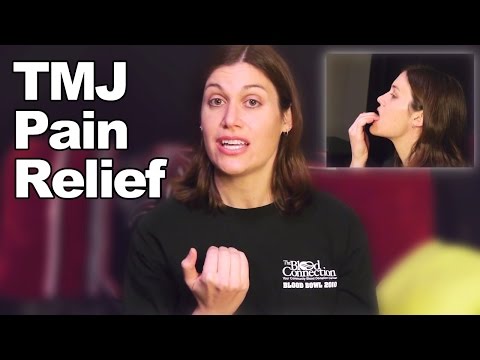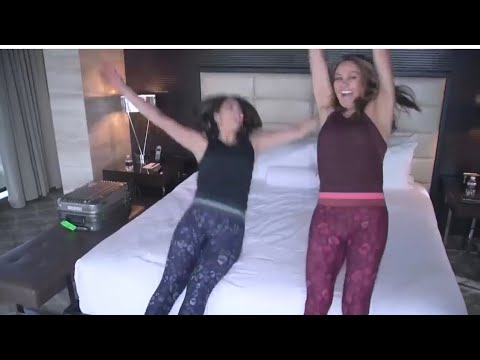
TMJ Exercises & Stretches to Relieve Jaw Pain: Doctor Jo shows you some simple stretches to help relieve TMJ and jaw pain. For more physical therapy videos or to Ask Doctor Jo a question, visit
Doctor Jo on Facebook:
Doctor Jo on Twitter:
More Details About This Video:
The temporomandibular joint (TMJ) can cause severe jaw pain. The jaw joint and surrounding facial muscles that control chewing and moving the jaw are often involved. Clicking, popping, pain, and deviations in the movements of the joint are common symptoms. Stretching the TMJ and strengthening the muscles around the joint are just as important as any other part of your body.
First, take your palm and slowly push on one side of your jaw. The pressure is on your chin. Push back with your jaw, but make sure your teeth are aligned. Start off gently, and if there is no pain, push a little harder. Do both sides; this will increase the strength and control of the joint.
Next, push down on your bottom teeth with your fingers, and push up with your jaw. Try to keep your jaw in one place, and don’t bite down.
Finally, hold your mouth slightly open and aligned. Then, with your palm, push your chin straight in towards you. You should feel a stretch on your TMJ.
Hold these for about 5 seconds each, and build your time up to 30 seconds, doing 3-5 each.
DISCLAIMER: This video and any related comments are not medical advice. Doctor Jo is a licensed Physical Therapist and Doctor of Physical Therapy; however, she is not YOUR Physical Therapist and can’t possibly diagnose you through the Internet. So don’t use this information to avoid going to your own healthcare professional or to replace the advice they have given you. This information is only intended to show you the correct technique for physical therapy exercises and should not be used to self-diagnose or self-treat any medical condition. If you are not properly diagnosed, this information won’t help, and it could make things worse. So seriously, check with your healthcare professional before doing these techniques. If you experience any pain or difficulty while doing these exercises, stop immediately and see your healthcare professional.






